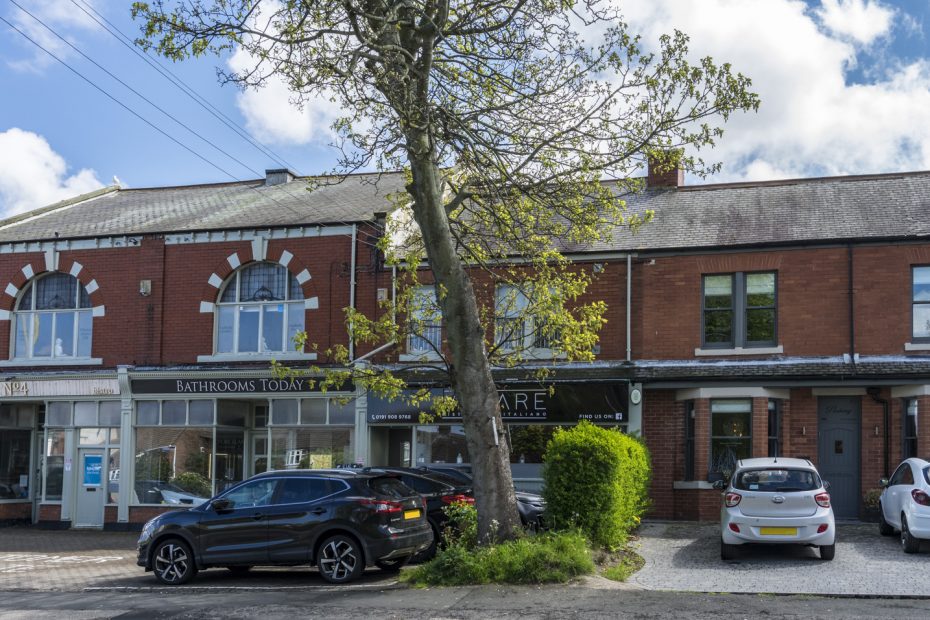Non-residential traffic generating development should provide an adequate amount of off-street parking for staff and visitors to ensure that there are no adverse impacts on the highway network and amenity of the area in accordance with the Council’s Parking Standards. When determining the level of off-street parking required, the following should be considered:
a. Projected staff numbers and the operating hours of the business;
b. Projected visitor numbers and the likely duration of the visit; and
c. The accessibility of the development by modes other than private car.
Parking is one of the main issues identified through early engagement with the local community and businesses. The local street patterns, especially those near to the metro station and shops are mainly terraced in form and result in limited parking opportunities. The metro station attracts a number of people with cars who live outside the area. The impact of this is high levels of on street parking which negatively impacts on highway and pedestrian safety. Lack of appropriate parking has also been identified by local businesses as a factor which impacts on their business operation.
In the plan area there are two off-street car parks providing 107 spaces at the metro station and rear of the Grey Horse Public House. There is also a car park at Boker Lane/Hardie Drive adjoining the plan boundary providing another 22 spaces. There are 17 lay-by spaces at Cleadon Lane and 55 spaces (including 3 for disabled drivers) provided on street or in lay-bys with limited waiting. In addition, there are 60 on street spaces with unlimited waiting, and 7 residents only places in Grange Terrace. The car park at Boker Lane remains relatively accessible during the day but is affected by a high number of ‘white vans’ which are parked there from 5pm onward. The car park in Cleadon Lane is used to capacity every workday with vans from the adjacent industrial estate, and cars left by users of the metro, often spilling over onto the adjoining grass verges.
The local community are concerned that South Tyneside Council adopted parking standards do not reflect local circumstance and are out of date. Residents believe that in the event of future residential development, the current standards will exacerbate the parking problems experienced in large areas of the village and will result in serious problems associated with unplanned on street parking both within new development and in the adjoining residential areas.
The provision of car parking within new residential development has highlighted a number of concerns for the local community. Restrictions on car parking provision as part of an approach towards managing demand for car travel are not always effective and can result in unacceptable levels of on street car parking causing serious road safety issues for pedestrians and cyclists alike. Households have a desire to park close to their home and in many locations off-street parking provision provided by rear parking courts is poorly used and results in vehicles spilling onto nearby roads and pavements. However, off-street parking within the curtilage of dwellings can be inefficient where garages are provided and these are not large enough to accommodate a modern sized vehicle, or they are used for bike and bin storage instead.
The continued popularity and encouragement by government of cycling as a means of transport requires that careful consideration be given to cycle storage. The advent of ‘e’ bikes and their increasing affordability has encouraged an even greater section of the population to cycle. Ensuring the provision of sufficient and appropriate cycle storage and parking is available as part of new development will further encourage and assist in providing people with practical alternatives to using the private car.
Policies EB20, EB21 and EB22 will therefore assist in the delivery of plan objectives 1, 2, 4, 6 and 8. Guidance relating to parking standards is set out in Annex 3 if the East Boldon Design Code.
